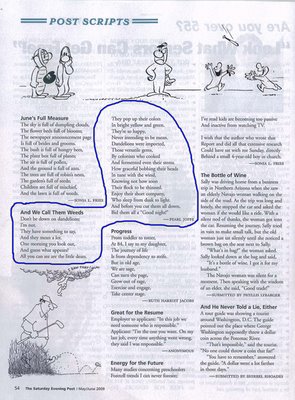What the Right Says About Judge Sotomayor
It has only been a few days since President Obama nominated Judge Sotomayor to the Supreme Court of the United States, but it hasn't taken long for the Republicans to start making all kinds of accusations against her. It is worth noting how many of those accusations are based on things that she has said as opposed to her rulings as a United States Circuit Court Judge. Anyway, I wanted to take some time to examine some of the current, initial crop of charges.
Let's start with this gem from former Rep. Tom Tancredo (R-Colorado) who told CNN's Rick Sanchez:
If you belong to an organization called La Raza, in this case, which is, from my point of view anyway, nothing more than a Latino — it’s a counterpart — a Latino KKK without the hoods or the nooses. If you belong to something like that in a way that’s going to convince me and a lot of other people that it’s got nothing to do with race. Even though the logo of La Raza is “All for the race. Nothing for the rest.” What does that tell you?For those who aren't familiar with La Raza, a more accurate comparison would be the Latino version of the NAACP or B'nai B'rith. (For the record, Tancredo is completely wrong about the logo or motto of La Raza.) What does La Raza say about itself:
Those familiar with the work of the National Council of La Raza (NCLR) know that we are the largest national Hispanic civil rights and advocacy organization in the U.S., and that we are an American institution committed to strengthening this great nation by promoting the advancement of Latino families. Our mission is to create opportunities and open the door to the American Dream for Latino and other families.
...
We recognize that some people might be confused about our organization’s name, our mission, and our work. Much of this is understandable. Compared to some of our venerable counterparts in the civil rights and advocacy community, we are a relatively young institution representing Latinos, a historically disadvantaged and often misunderstood ethnic minority. We have a Spanish term in our name, “La Raza” (meaning “the people” or “community”), which is often mistranslated. Furthermore, we are engaged in some of the most controversial issues of our time, which we believe is essential if we are to stay true to our mission.
Even a brief look at La Raza's website will reveal that it is an organization striving to do good work and membership in La Raza is something to be proud of, not hidden or scorned. President Bush, Sen. McCain, and Karl Rove have all spoken at recent La Raza conventions. And Tancredo? Well, don’t forget that he suggested walling off Brownsville, Texas to keep immigrants from penetrating further into America, sang “Dixie” in front of Confederate flags during a campaign event in South Carolina, referred to Miami as a third world city, and suggested a nuclear attack on Mecca.
It is also worth remembering that the last Justice confirmed to the Supreme Court, Samuel Alito, was a member of Concerned Alumni of Princeton, a group with an innocuous name but an agenda to limit admission to Princeton of minorities and women (say, like Sonia Sotomayor who entered Princeton the fall following Samuel Alito's graduation and the formation of Concerned Alumni of Princeton...). Yet I don't recall hearing people like Tancredo calling Alito a racist or a bigot as a result of his membership in that organization.
The quote of Judge Sotomayor that is getting the most attention is the following nugget from a fairly lengthy speech given in 2001 at the University of California, Berkeley School of Law:
I would hope that a wise Latina woman with the richness of her experiences would more often than not reach a better conclusion than a white male who hasn't lived that life.
Some have taken those 32 words -- part of a nearly 4,000 word speech -- to suggest that Judge Sotomayor is a racist (and thus, should not be confirmed to the bench). While I will agree that the statement might not be the most artful ever uttered, I would also posit that most of those who have jumped on the statement as an indication that she is a racist have not read the rest of that lecture. Let me offer a longer excerpt of her lecture that includes the quote in question (and I suggest that you take the time to read the entire lecture):
While recognizing the potential effect of individual experiences on perception, Judge Cedarbaum nevertheless believes that judges must transcend their personal sympathies and prejudices and aspire to achieve a greater degree of fairness and integrity based on the reason of law. Although I agree with and attempt to work toward Judge Cedarbaum's aspiration, I wonder whether achieving that goal is possible in all or even in most cases. And I wonder whether by ignoring our differences as women or men of color we do a disservice both to the law and society. Whatever the reasons why we may have different perspectives, either as some theorists suggest because of our cultural experiences or as others postulate because we have basic differences in logic and reasoning, are in many respects a small part of a larger practical question we as women and minority judges in society in general must address. I accept the thesis of a law school classmate, Professor Steven Carter of Yale Law School, in his affirmative action book that in any group of human beings there is a diversity of opinion because there is both a diversity of experiences and of thought. Thus, as noted by another Yale Law School Professor -- I did graduate from there and I am not really biased except that they seem to be doing a lot of writing in that area - Professor Judith Resnik says that there is not a single voice of feminism, not a feminist approach but many who are exploring the possible ways of being that are distinct from those structured in a world dominated by the power and words of men. Thus, feminist theories of judging are in the midst of creation and are not and perhaps will never aspire to be as solidified as the established legal doctrines of judging can sometimes appear to be.
That same point can be made with respect to people of color. No one person, judge or nominee will speak in a female or people of color voice. I need not remind you that Justice Clarence Thomas represents a part but not the whole of African-American thought on many subjects. Yet, because I accept the proposition that, as Judge Resnik describes it, "to judge is an exercise of power" and because as, another former law school classmate, Professor Martha Minnow of Harvard Law School, states "there is no objective stance but only a series of perspectives - no neutrality, no escape from choice in judging," I further accept that our experiences as women and people of color affect our decisions. The aspiration to impartiality is just that--it's an aspiration because it denies the fact that we are by our experiences making different choices than others. Not all women or people of color, in all or some circumstances or indeed in any particular case or circumstance but enough people of color in enough cases, will make a difference in the process of judging. The Minnesota Supreme Court has given an example of this. As reported by Judge Patricia Wald formerly of the D.C. Circuit Court, three women on the Minnesota Court with two men dissenting agreed to grant a protective order against a father's visitation rights when the father abused his child. The Judicature Journal has at least two excellent studies on how women on the courts of appeal and state supreme courts have tended to vote more often than their male counterpart to uphold women's claims in sex discrimination cases and criminal defendants' claims in search and seizure cases. As recognized by legal scholars, whatever the reason, not one woman or person of color in any one position but as a group we will have an effect on the development of the law and on judging.
In our private conversations, Judge Cedarbaum has pointed out to me that seminal decisions in race and sex discrimination cases have come from Supreme Courts composed exclusively of white males. I agree that this is significant but I also choose to emphasize that the people who argued those cases before the Supreme Court which changed the legal landscape ultimately were largely people of color and women. I recall that Justice Thurgood Marshall, Judge Connie Baker Motley, the first black woman appointed to the federal bench, and others of the NAACP argued Brown v. Board of Education. Similarly, Justice Ginsburg, with other women attorneys, was instrumental in advocating and convincing the Court that equality of work required equality in terms and conditions of employment.
Whether born from experience or inherent physiological or cultural differences, a possibility I abhor less or discount less than my colleague Judge Cedarbaum, our gender and national origins may and will make a difference in our judging. Justice O'Connor has often been cited as saying that a wise old man and wise old woman will reach the same conclusion in deciding cases. I am not so sure Justice O'Connor is the author of that line since Professor Resnik attributes that line to Supreme Court Justice Coyle. I am also not so sure that I agree with the statement. First, as Professor Martha Minnow has noted, there can never be a universal definition of wise. Second, I would hope that a wise Latina woman with the richness of her experiences would more often than not reach a better conclusion than a white male who hasn't lived that life.
Let us not forget that wise men like Oliver Wendell Holmes and Justice Cardozo voted on cases which upheld both sex and race discrimination in our society. Until 1972, no Supreme Court case ever upheld the claim of a woman in a gender discrimination case. I, like Professor Carter, believe that we should not be so myopic as to believe that others of different experiences or backgrounds are incapable of understanding the values and needs of people from a different group. Many are so capable. As Judge Cedarbaum pointed out to me, nine white men on the Supreme Court in the past have done so on many occasions and on many issues including Brown.
Does that sound like a racist to you?
And, as long as we're discussing the impact of race or gender on a jurist's viewpoint, let's remember what has been said in the past. For example, what did Judge Alito have to say about the subject during his nomination hearings just a few years ago?
So, apparently it is OK for a white man to consider his gender and ethnic background but the same does not hold true for a hispanic woman? What about any woman? Well, here’s what Justice Sandra Day O’Connor had to say about herself:I don't come from an affluent background or a privileged background. My parents were both quite poor when they were growing up.
And I know about their experiences and I didn't experience those things. I don't take credit for anything that they did or anything that they overcame.
But I think that children learn a lot from their parents and they learn from what the parents say. But I think they learn a lot more from what the parents do and from what they take from the stories of their parents lives.
And that's why I went into that in my opening statement. Because when a case comes before me involving, let's say, someone who is an immigrant -- and we get an awful lot of immigration cases and naturalization cases -- I can't help but think of my own ancestors, because it wasn't that long ago when they were in that position.
And so it's my job to apply the law. It's not my job to change the law or to bend the law to achieve any result.
But when I look at those cases, I have to say to myself, and I do say to myself, "You know, this could be your grandfather, this could be your grandmother. They were not citizens at one time, and they were people who came to this country."
When I have cases involving children, I can't help but think of my own children and think about my children being treated in the way that children may be treated in the case that's before me.
And that goes down the line. When I get a case about discrimination, I have to think about people in my own family who suffered discrimination because of their ethnic background or because of religion or because of gender. And I do take that into account. When I have a case involving someone who's been subjected to discrimination because of disability, I have to think of people who I've known and admire very greatly who've had disabilities, and I've watched them struggle to overcome the barriers that society puts up often just because it doesn't think of what it's doing -- the barriers that it puts up to them.
So those are some of the experiences that have shaped me as a person.
I bring to the court the perspective of a woman primarily in a sense that I am female, just as I am white, a college graduate, etc.
“Yes, I will bring the understanding of a woman to the court, but I doubt that that alone will affect my decisions,” she said. “I think the important fact about my appointment is not that I will decide cases as a woman, but that I am a woman who will get to decide cases.”
And Justice O’Connor also noted that Justice Thurgood Marshall “imparted not only his legal acumen but also his life experiences”.
Even Judge Clarence Thomas acknowledged during his confirmation hearings that his background played a role:
And I believe, Senator, that I can make a contribution, that I can bring something different to the Court, that I can walk in the shoes of the people who are affected by what the Court does. You know, on my current court I have occasion to look out the window that faces C Street, and there are converted buses that bring in the criminal defendants to our criminal justice system, bus load after bus load. And you look out and you say to yourself, and I say to myself almost every day, "But for the grace of God there go I."
Yes, I recognize that Judge Alito's and Justice O’Connor’s and Judge Thomas’ comments are not precisely the same as Judge Sotomayor’s; however, when examined in their broader context, I believe that all of these judges are saying essentially the same thing: Who we are and where we come from has an impact on our view of the world and our understanding of the issues with which we are confronted. And is that so bad?
President Obama has also been criticized for saying that he wanted to appoint to the bench someone with "empathy"; the right has argued that word is simply a code word for "activist judge". If so, then they might want to have a talk with President George H.W. Bush who said when nominating Clarence Thomas: "He is a delightful and warm, intelligent person who has great empathy and a wonderful sense of humor” (emphasis added). And John Yoo (now infamous for his role in the torture memos) said this about Justice Thomas (in a review of the Justice's memoir):
Justice Thomas's views were forged in the crucible of a truly authentic American story. This is a black man with a much greater range of personal experience than most of the upper-class liberals who take potshots at him. A man like this on the Court is the very definition of the healthy diversity his detractors pretend to support.
So both empathy and life experiences are apparently acceptable as long as they're not from someone on the "left".
While most of the Senators who have spoken about Judge Sotomayor’s nomination have endeavored to keep their comments fair and suggest that their minds remain open, many mouthpieces from the right haven’t been so civil. Besides the comment from Tancredo, mentioned above, former Speaker of the House New Gingrich took time out from a visit to Auschwitz to tweet:
White man racist nominee would be forced to withdraw. Latina woman racist should also withdraw.
It’s bad enough that Gingrich thinks she’s a racist; it’s even worse that he felt the need to take time out from touring Auschwitz. Apparently the death camp wasn’t making much of an impression on Newt. Then we have Rush Limbaugh, who is always good for a quote or two:
She's got a -- she's an angry woman, she's got a -- she's a bigot. She's a racist. In her own words, she's the antithesis of a judge.
And finally, we have G. Gordon Liddy:
Let’s hope that the key conferences aren’t when she’s menstruating or something, or just before she’s going to menstruate. That would really be bad. Lord knows what we would get then.
Ah, yes. High-minded civic dialogue.
Some of the criticism has been less vicious and more, well, weird. An article posted on The Hill left writer Alexander Bolton wondering whether Republicans were seriously worried that Judge Sotomayor's cuisine would influence her decision-making:
A blogger with Talking Points Memo called The Hill's reporter to ask about these comments:Sotomayor also claimed: “For me, a very special part of my being Latina is the mucho platos de arroz, gandoles y pernir — rice, beans and pork — that I have eaten at countless family holidays and special events.”
This has prompted some Republicans to muse privately about whether Sotomayor is suggesting that distinctive Puerto Rican cuisine such as patitas de cerdo con garbanzo — pigs’ feet with chickpeas — would somehow, in some small way influence her verdicts from the bench.
Curt Levey, the executive director of the Committee for Justice, a conservative-leaning advocacy group, said he wasn’t certain whether Sotomayor had claimed her palate would color her view of legal facts but he said that President Obama’s Supreme Court nominee clearly touts her subjective approach to the law.
I called Bolton earlier today and asked him whether this was for real--whether any conservatives were genuinely raising this issue. He confirmed, saying, "a source I spoke to said people were discussing that her [speech] had brought attention...she intimates that what she eats somehow helps her decide cases better."Bolton said the source was drawing, "a deductive link," between Sotomayor's thoughts on Puerto Rican food and her other statements.
That's like suggesting that Justice Ginsburg and Justice Breyer are liberal because they enjoy lox on their bagels or maybe a little gefilte fish at Pesach.
Finally, I couldn't help myself and had to offer this final "criticism" directed against Judge Sotomayor (I think she’s the target, but I’m not exactly sure…) by Mark Krikorian for National Review Online (emphasis in original):
Most e-mailers were with me on the post on the pronunciation of Judge Sotomayor's name (and a couple griped about the whole Latina/Latino thing — English dropped gender in nouns, what, 1,000 years ago?). But a couple said we should just pronounce it the way the bearer of the name prefers, including one who pronounces her name "freed" even though it's spelled "fried," like fried rice. (I think Cathy Seipp of blessed memory did the reverse — "sipe" instead of "seep.") Deferring to people's own pronunciation of their names should obviously be our first inclination, but there ought to be limits. Putting the emphasis on the final syllable of Sotomayor is unnatural in English (which is why the president stopped doing it after the first time at his press conference), unlike my correspondent's simple preference for a monophthong over a diphthong, and insisting on an unnatural pronunciation is something we shouldn't be giving in to.
For instance, in Armenian, the emphasis is on the second syllable in my surname, just as in English, but it has three syllables, not four (the "ian" is one syllable) — but that's not how you'd say it in English (the "ian" means the same thing as in English — think Washingtonian or Jeffersonian). Likewise in Russian, you put the emphasis in my name on the final syllable and turn the "o" into a schwa, and they're free to do so because that's the way it works in their language. And should we put Asian surnames first in English just because that's the way they do it in Asia? When speaking of people in Asia, okay, but not people of Asian origin here, where Mao Tse-tung would properly have been changed to Tse-tung Mao. Likewise with the Mexican practice of including your mother's maiden name as your last name, after your father's surname.
This may seem like carping, but it's not. Part of our success in assimilation has been to leave whole areas of culture up to the individual, so that newcomers have whatever cuisine or religion or so on they want, limiting the demand for conformity to a smaller field than most other places would. But one of the areas where conformity is appropriate is how your new countrymen say your name, since that's not something the rest of us can just ignore, unlike what church you go to or what you eat for lunch. And there are basically two options — the newcomer adapts to us, or we adapt to him. And multiculturalism means there's a lot more of the latter going on than there should be.
Analysis of Judge Sotomayor's judicial philosophy, a careful reading of her written opinions, and her testimony before the Senate are all important facts to weigh in deciding whether she should be confirmed as the next Justice of the Supreme Court of the United States. But taking out of context one brief comment from a much larger speech or criticizing her involvement with a civic organization (and suggesting that the organization is nefarious) or wondering about her empathy or choice in cuisine or the pronunciation of her name is just silly. No, that's not right. It would be silly if this weren't so meaningful. It is wrong. Let's have an honest discussion of her merits as a judge, not on where the emphasis goes when pronouncing her name or whether she likes pork with her rice and beans. That is demeaning to her, demeaning to the office, demeaning to the process, and demeaning to the country.
Oh, two more quick items that I’ll mention briefly now and try to write about later in more detail: You may also hear the suggestion that Judge Sotomayor is not a good judge because she has been overruled by the Supreme Court 60% (or even 80%) of the time. Here’s the problem with that statistic. First, it is less than average. Second, at the Court of Appeals, Judges work in panels of 3 (or sometimes, more) judges. Third, the Supreme Court has the privilege to decide which cases its wants to hear and a large percentage of those cases are heard precisely because they will be overturned. And finally, that whopping 60% number? Well, in reality it amounts to a grand total of about 6 cases in 16 years. She’s apparently written nearly 400 opinions in that time. Suddenly those odds don’t seem quite so bad, do they?
Finally, several pundits (Pat Buchanan being the prime example) have called Judge Sotomayor’s nomination an affirmative action nomination and suggest that her race and gender were critical components of her selection. That may be true. But here’s the problem with that analysis: Any nominee who is not a white male (and probably a Christian white male, at that) would probably face the same allegation. In other words, any nominee of color, any non-Christian, any woman, could be charged with being an affirmative action nominee or a nominee selected for identity politics purposes rather than judicial qualifications. Don’t forget the scorn directed at President Bush (#1) when he nominated Clarence Thomas to replace Thurgood Marshall. Nobody other than President Bush really believed that Judge Thomas was the most qualified candidate. But today, while I’ve heard many people criticize Judge Sotomayor for all sorts of reasons, some real, some manufactured, very few people have made any sort of case (let alone a compelling case) that she is not eminently qualified to serve. Thus, the charge of identity politics may be true, but it may also be a trap that President Obama could only avoid by appointing yet another white, male, Christian to the bench. And of course, had he done so, that would have been identity politics, too, wouldn’t it?
(Note: Reposted July 16 following accidental deletion of original post.)
Labels: Politics





























